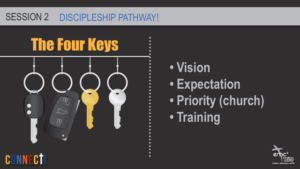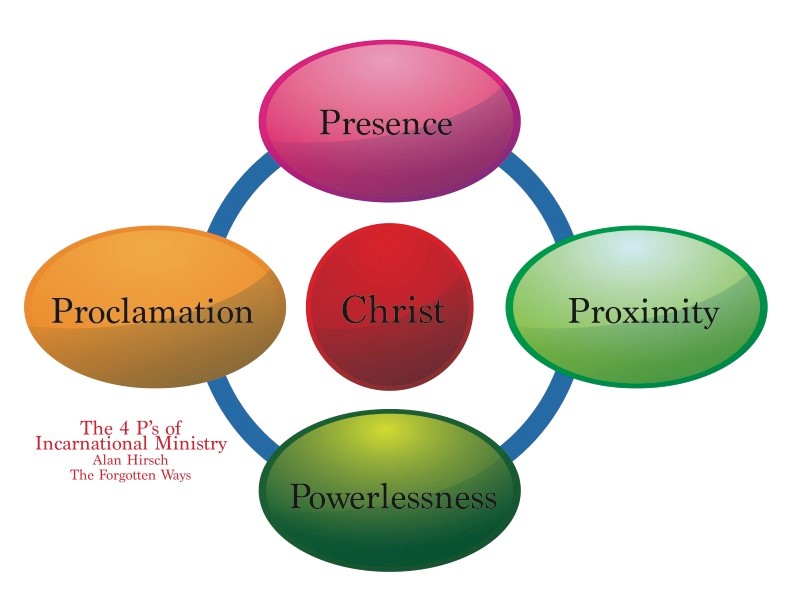By Phil Maynard
September 26,2016
Every church I meet with expresses in some way a desire to reach new people and engage them in becoming growing disciples of Jesus Christ. It is also true, however, that almost every church I meet with is in decline, resulting in fewer people participating in worship, less of a focus on people growing as disciples, and a diminishing impact on our communities.
It doesn’t have to be this way.
I had a conversation with a good friend recently who shared that she and her husband had finally decided to leave the United Methodist Church. This couple had been very faithful members of their local Methodist congregation–she had even led the disciple-making process. But after much soul-searching, they had moved to a non-denominational church, a church that she describes as still “talking about Jesus.” They are very excited about the ministries of this new church and the opportunities to help disciple new believers. One of the things my friend discovered in conversation with the pastor at her newly adopted faith community is that people are coming in droves. They are growing really fast. New people are making commitments to Jesus every week. People are telling their friends about the amazing things that are happening. Friends are bringing friends to church to discover Jesus for themselves. Participants are telling the stories of how Jesus is making a difference in their lives.
Now, think about your church. If this excitement and enthusiasm is not your church’s experience, it could be. But it takes some clarity and planning and plain old hard work. I suggest the following 4 keys as being essential to the process.

Creating Vision
Jesus said to his disciples, “You shall be my witnesses in Jerusalem, Judea, Samaria, and to the ends of the earth.” (Acts 1:8) and “Go . . . make disciples of all nations
Jesus left a clear vision for the work of the disciples. And they turned the world upside down.
Jesus’ vision for the church hasn’t changed. We are still called to go (as in outside the church) and make disciples (as in help people discover the love of Jesus for themselves).
You might start considering the possibilities by using a series of questions popularized by Adam Hamilton:
• Why Jesus? How does a relationship with Jesus impact a person’s life?
• Why Church? What can people get at church that they can’t get anywhere else?
• Why this church? What’s different about our church? Would I want to come to this church if I weren’t already part of it?
However you do it, if you want to have a faith community that reaches new people for Jesus, the church must cast a vision for doing that. We have to communicate that it is important – that this is why we exist.
Defining Expectations
There’s a catch-22 thing going on in the church that is actually pretty common. A new young family comes to visit, and they seem really excited about what you have to offer. You (the pastor/church leader) are excited as well. This could be the beginning of getting other new young families to come to your church as they begin to tell their friends about their experience. After about six months you are a little disappointed. The new family continues to enjoy their time with your congregation, but they haven’t brought anyone with them. The new family senses your disappointment, but doesn’t understand why you are disappointed. So they begin to withdraw little by little. There’s even talk of leaving the church.
The problem is that no clear expectations were communicated. There is no conversation about this being part of what it means to grow as a disciple. There was no clarity about this dimension (their witness) when they joined the church. They are doing what they see everybody else doing. If you want to get people to build relationships outside the church, to share their faith stories, to help others to discover a relationship with Jesus, to invite others to even to come to church, you have to set clear expectations.
One way to do this is to teach it and encourage it through the discipling process. In most churches, only a small percentage of participants (usually less than 5%) interact in a spiritual sense with people beyond the walls of the church, intentionally seeking opportunities to be the presence of Christ in the lives of others. And most congregations don’t even teach that this is part of what it means to be a disciple.
One of the ways that churches across the country are closing this gap is by inviting participation in Member Covenants. These documents typically clarify what we mean by prayers, presence, gifts, service, and witness (familiar Methodist membership terms). For example, in the dimension of Witness, the covenant could read:
Invite someone to come with me to church/events at least three times per year and build at least three relationships outside the church to witness the love of Christ.
You can follow this link to download a sample copy of a full Membership Covenant.
Establishing Priorities
If the church wants to change congregational culture so that building of relationships beyond the church is a priority, several things need to happen:
• First, it means that we have to stop keeping people so busy that they don’t have time to be in relationship with people outside the church.
• Second, it means that the pastor and church leadership will need to model the priority of relationships – especially those outside the church.
• Third, it means that the church will need to celebrate the ways people are engaging those outside the church. We tend to do just the opposite. We tend to measure and celebrate how many of our members we get to show up to church activities.
Facilitating Training
Last, but certainly not least, we need to train people in how to make connections, build relationships, share their stories, and witness to their faith. For some reason, many churches seem reluctant to take action. I think it may be that they simply don’t know how – especially how to do these things in natural, relational ways. But these are all skills that can and should be taught as part of the normal discipleship process. It requires a commitment to the idea that discipleship should always be intentional, not merely a byproduct of Sunday mornings. When we are intentional in our discipleship, the Holy Spirit works through that sustained focus, and amazing things happen.
Want more insight into helping people build relationships that reach new people for Jesus? Check out Phil’s new book, Connect! Creating A Culture of Relationships that Matter, as well as the associated small group study Connect! For Individuals and Small Groups, available now.


Love the point about being busy. Visited my old Methodist church this past weekend. Still the topic of being too busy for God came up in the Children’s sermon. Let’s not be so busy doing church work that we aren’t led by His spirit to do God work.